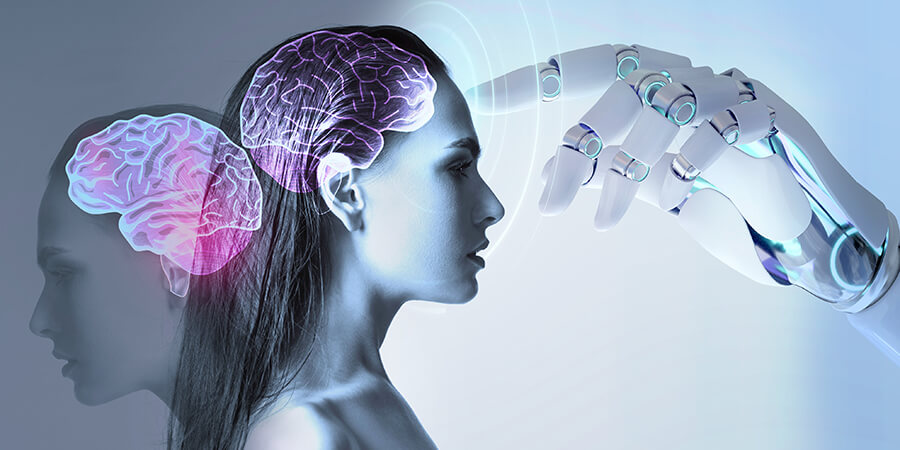Artificial intelligence is reshaping numerous fields, and mental health care is no exception. AI-driven chatbots and therapy apps are emerging as innovative tools designed to provide mental health support, improve access to care, and offer new approaches to managing mental health conditions. This blog explores how AI is being utilized in mental health, the benefits of these technologies, and the challenges they face.
AI-powered mental health tools, particularly chatbots and therapy apps, are designed to offer immediate, accessible support for individuals dealing with mental health issues. One of the most well-known examples is Woebot, a chatbot developed by Woebot Health. Woebot uses natural language processing (NLP) and cognitive behavioral therapy (CBT) techniques to engage users in conversations aimed at improving mental well-being. Users interact with Woebot via text, where the chatbot provides evidence-based therapeutic interventions and emotional support. Woebot’s ability to offer immediate assistance and monitor users’ mental health in real-time represents a significant shift in how mental health care can be delivered.
Another prominent example is Wysa, an AI-driven mental health app that combines chatbot interactions with a range of self-help tools and resources. Wysa offers users access to exercises based on CBT, mindfulness techniques, and mood tracking features. The app’s AI algorithms analyze user interactions and provide personalized feedback, helping users manage stress, anxiety, and depression. Wysa’s blend of AI-driven support and therapeutic exercises makes mental health care more accessible and personalized for users.
AI-driven chatbots and apps provide several key benefits in the realm of mental health care. Accessibility is one of the most significant advantages. Traditional mental health services can be difficult to access due to factors such as cost, geographic location, and long waiting times for appointments. AI-powered tools offer a solution by providing immediate, 24/7 support to users, regardless of their location or time of day. This accessibility is particularly valuable for individuals who may not have access to traditional mental health services or who need support outside of regular office hours.
These tools also offer a level of anonymity and privacy that can encourage users to seek help. Many individuals may feel hesitant to reach out for mental health support due to stigma or fear of judgment. AI-powered chatbots and apps provide a confidential environment where users can discuss their concerns without the fear of being judged. This anonymity can help users feel more comfortable seeking help and engaging with mental health resources.
Another benefit is the ability to offer scalable support. Traditional mental health services often face limitations in terms of the number of individuals they can reach due to constraints such as the availability of therapists and counselors. AI tools can provide support to a large number of users simultaneously, making it possible to offer mental health care on a broader scale. This scalability is essential for addressing mental health needs on a global level, especially in regions with limited mental health resources.
AI-powered mental health tools also leverage data to provide personalized and adaptive support. By analyzing user interactions, these tools can tailor their responses and interventions to individual needs. For instance, AI algorithms can track users’ mood over time and suggest specific exercises or strategies based on their emotional state. This personalized approach helps ensure that the support provided is relevant and effective for each user.
Despite these benefits, there are several challenges associated with AI in mental health care. One of the primary concerns is the effectiveness of AI-driven interventions compared to traditional therapy. While chatbots and apps can provide valuable support, they are not a replacement for professional mental health care. Ensuring that AI tools offer evidence-based, effective interventions is crucial for their success. Researchers and developers are continually working to improve these technologies and validate their effectiveness through clinical trials and user feedback.
Another challenge is the issue of data privacy and security. AI mental health tools collect sensitive information about users’ mental health and personal experiences. Ensuring that this data is protected from unauthorized access and used ethically is essential for maintaining user trust. Developers must adhere to strict privacy standards and implement robust security measures to safeguard user data.
The potential for AI tools to inadvertently reinforce biases is another concern. AI algorithms are trained on existing data, which can include biases present in the training data. If not addressed, these biases could lead to unequal or suboptimal support for different user groups. Developers need to be vigilant in identifying and mitigating biases in AI models to ensure that the tools provide fair and equitable support for all users.
Looking forward, the future of AI in mental health care holds great promise. Advances in machine learning, NLP, and data analytics will continue to enhance the capabilities of chatbots and therapy apps. Innovations such as integrating AI with virtual reality for immersive therapeutic experiences and combining AI with human therapists for hybrid care models are on the horizon. These developments have the potential to further transform mental health care by offering more diverse and effective treatment options.
As AI technology evolves, it will be essential to address the ethical, legal, and practical challenges associated with its use in mental health care. By focusing on improving the effectiveness of interventions, ensuring data privacy, and mitigating biases, AI-driven tools can play a significant role in enhancing mental health support and accessibility.
AI is redefining the landscape of mental health care through innovative chatbots and therapy apps. These technologies offer accessible, anonymous, and scalable support for individuals seeking mental health assistance. While challenges such as effectiveness, data privacy, and bias must be addressed, the ongoing advancements in AI promise a future where mental health care is more inclusive and adaptable to the needs of diverse populations.
As AI continues to advance, the integration of these technologies into mental health care practices will likely expand, offering new opportunities for improving mental well-being and broadening access to essential support services.
By Our Media Team
Our Editorial team comprises of over 15 highly motivated bunch of individuals, who work tirelessly to get the most sought after curated content for our subscribers.




